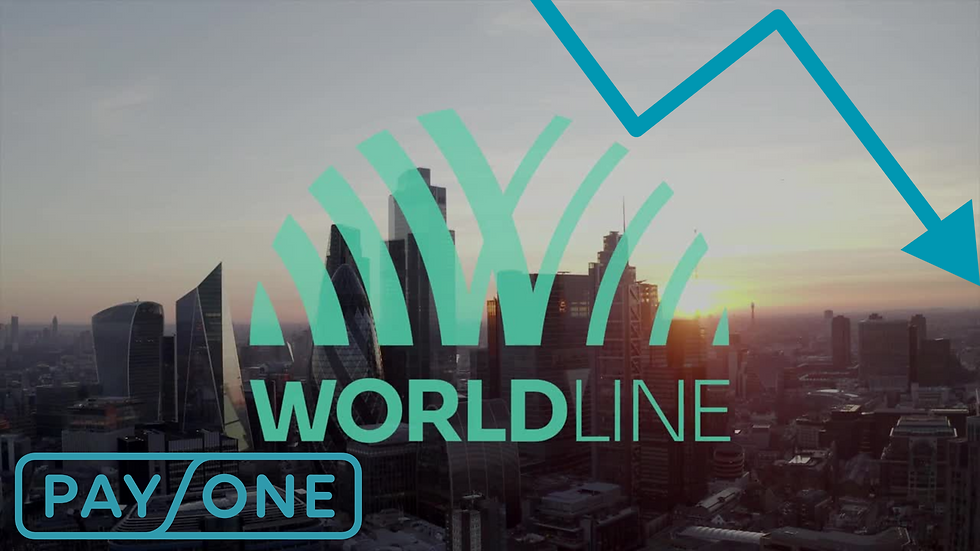Dirty Payments: The Scandal Forcing a Compliance Reckoning in Europe
- Andrea Llamas
- Jun 30, 2025
- 3 min read

Compaytence Editorial | June 2025
Payment Giants in the Crosshairs – What the Worldline-Payone Scandal Means for the Future of Risk, Reputation, and Merchant Onboarding
In a financial ecosystem still smarting from the ghosts of Wirecard, the June 2025 revelations surrounding Worldline and its German subsidiary Payone have reopened wounds the European payments industry hoped were long healed. The exposé—coordinated by the European Investigative Collaborations (EIC) network and corroborated by multiple outlets including DER SPIEGEL and Reuters—has laid bare a decade-long undercurrent of complicity with high-risk and allegedly fraudulent merchants, including subscription scam operations, pornographic platforms, and unregulated online gambling.

Worldline, once heralded as a pan-European fintech consolidator, now finds itself in the center of an escalating reputational crisis. Following the EIC’s revelations, its share price cratered more than 41% in a single day, wiping billions off its market cap and pushing investor sentiment to record lows. The scandal casts serious doubt on the group’s compliance frameworks, governance rigor, and risk containment practices.
A Systemic Compliance Breakdown
The details are damning: internal documents show that PAYONE onboarded and processed payments for merchants flagged for suspicious behavior, including porn networks operated by Ray Akhavan—dubbed the “Porn Baron”—and portfolios referred by convicted fraudster Ruben Weigand, whose clients had previously attempted to conceal cannabis transactions as pet food.
Even after regulatory scrutiny intensified in 2021 and BaFin imposed direct sanctions in 2023—prohibiting Payone from servicing 450 high-risk merchants—allegations suggest that Worldline simply rerouted many of these merchants through other subsidiaries. This paints a picture not just of compliance failure, but of systemic evasion: a sophisticated shell game enabled by the complexity and opacity of multinational PSP conglomerates.

A particularly troubling disclosure involves an internal Worldline document instructing staff not to disclose the existence of “master merchant” structures—shadow networks controlling thousands of websites that legally do not exist. According to the report, these entities were designed specifically to obfuscate risk origin, chargebacks, and real merchant identities.
The Sparkasse Dilemma
Payone’s partial ownership by Deutsche Sparkassenverlag—a pillar of German financial conservatism—adds further tension. The Sparkasse brand was leveraged as a stamp of credibility, while the engine of revenue growth became increasingly tied to high-risk commerce. By 2019, high-risk clients represented only 2% of Payone’s staff capacity but generated 13.6% of the company’s gross card acceptance margin.
This dissonance between risk and reward culminated in a spectacular governance collapse. It also exposes the limitations of joint ventures between traditional banking entities and global PSPs: alignment of compliance culture, it turns out, is not guaranteed by equity ownership.
The Fallout: More Than Just Stock Prices
Beyond share prices and balance sheets, this crisis will have three immediate effects on the industry:
Merchant Onboarding Will Get Tighter: PSPs will double down on due diligence. The days of speed-first, volume-driven onboarding are numbered. Even grey-area businesses—subscription-based apps, online coaching platforms, adult content services—will face a tougher gauntlet.
PSPs Will Seek Intermediary “Filters”: Payment facilitators and aggregators that can demonstrate robust KYC/AML processes will become more valuable. PSPs are now actively looking to delegate pre-screening to trusted partners.
Reputation Is Now Balance-Sheet Risk: The market’s reaction—dropping Worldline’s valuation by more than 90% since 2021—shows that reputation management is more than slightly concerning.
Opportunity for the Compliant
For merchants navigating today’s payments environment, the message is clear: compliance is your license to operate.
Those who invest in transparent structures, verifiable business models, and proper KYC documentation will increasingly stand out as preferred partners to global PSPs. The current climate demands a proactive posture:
Ensure full clarity on ownership structures and business models
Avoid operating in legal grey zones, especially with regard to adult content, gambling, and subscription payments
Maintain a transparent chargeback history and merchant descriptor trail
Use properly registered domains and verified websites
As more PSPs tighten onboarding, the merchants who anticipate these shifts will be the ones who continue scaling globally—while others face rejection or account closures. There’s an opportunity here: not merely to stay in business, but to move ahead of the market by aligning with best-in-class operational standards.

Final Word: Lessons of Wirecard, Ignored
The Worldline-Payone scandal should not be viewed in isolation. It reflects a wider industry vulnerability—where profitability can quietly erode the guardrails meant to ensure trust.
For merchants and PSPs alike, the path forward requires transparency, accountability, and a shared understanding: risk management should be built in operationally, as it can damage more than just your reputation.
Protect your business against rising compliance thresholds and shifting processor expectations. Compaytence provides tailored advisory on merchant structuring, PSP onboarding, and risk exposure mitigation—across markets, industries, and regulatory frameworks. Reach out to learn how we can help you scale with credibility.




Comments